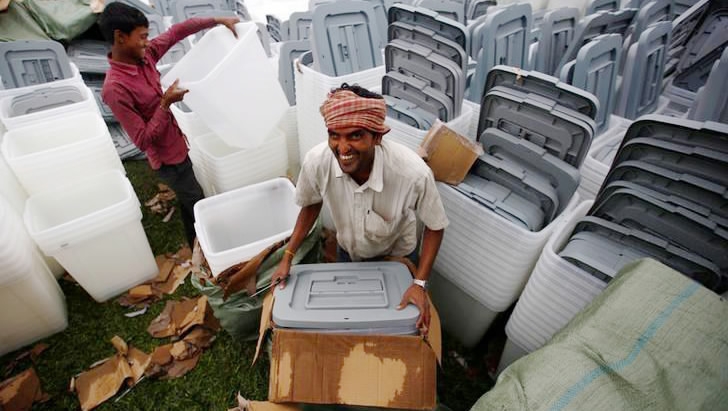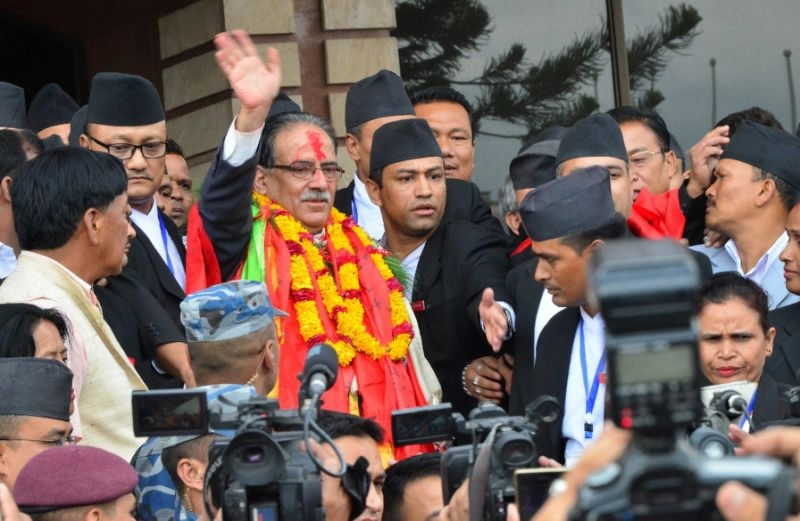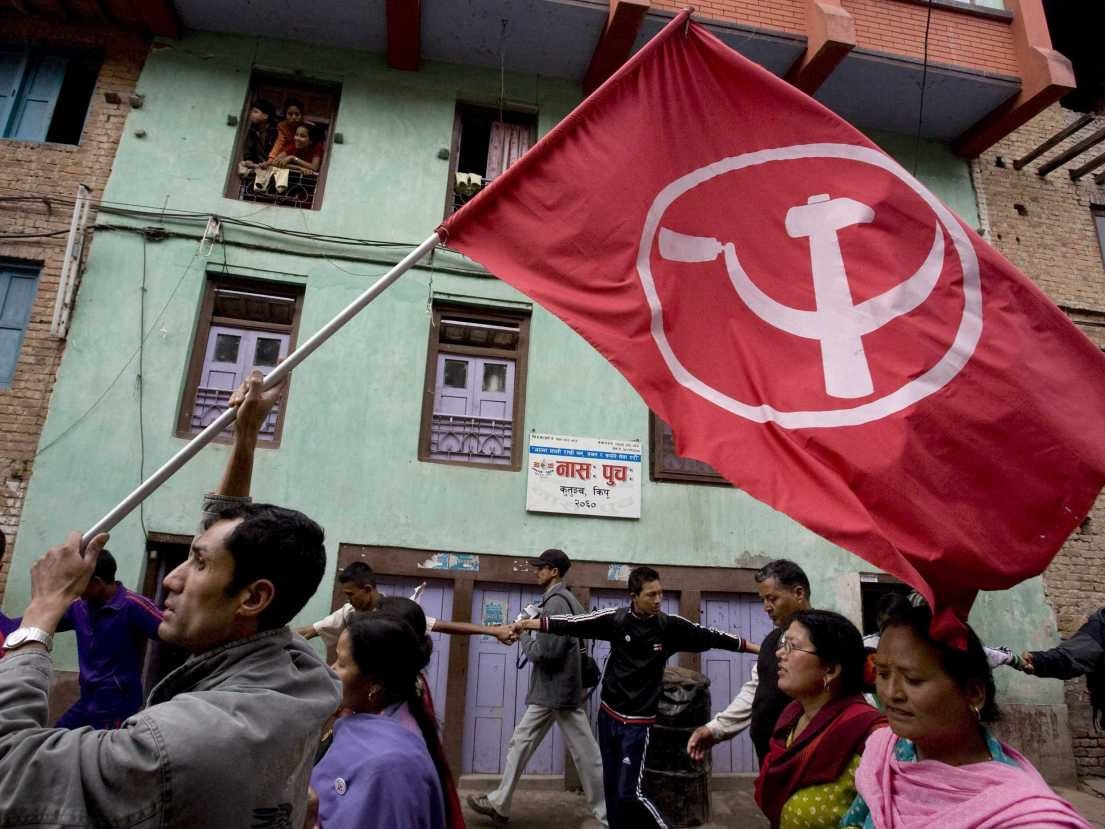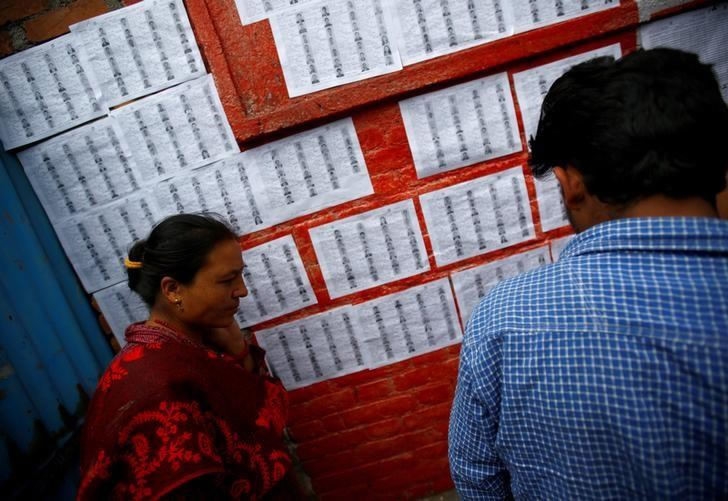
Politics
13:04, 22-Nov-2017
Battle for hearts, minds and ears in Nepal election
CGTN

With days to go before elections in Nepal the battle for votes is being fought over the air waves as radio stations, many backed by political parties, beam campaign messages to the farthest corners of the Himalayan nation.
Social media may now dominate political campaigns in the West, but in Nepal, where fewer than one in five people has access to the Internet, radio is king.
Community radio exploded in the early 1990s as Nepal's monarchy began to loosen its grip on power, liberalizing the media and allowing popular elections for a new government.
It grew with the mobile revolution as cheap handsets with built-in FM receivers became widely owned, allowing news to reach areas of the landlocked mountainous country where newspapers can take days to arrive.

Nepal's newly-elected Prime Minister Pushpa Kamal Dahal greets supporters as he leaves the parliament building in Kathmandu, August 3, 2016. /AFP Photo
Nepal's newly-elected Prime Minister Pushpa Kamal Dahal greets supporters as he leaves the parliament building in Kathmandu, August 3, 2016. /AFP Photo
Now the young republic of 29 million people has over 550 radio stations – nearly double the number of commercial FM stations in neighboring India. But some fear that a medium once seen as a beacon of democracy has become overly politicized.
The vast majority of the stations – by some estimates as many as 90 percent – are now backed or owned outright by politicians or prominent supporters.
"Community radio (in Nepal) has always been the most powerful means of communication. They reach the largest number of people... the political parties have understood that," said Kunda Dixit, editor of the English-language Nepali Times newspaper.
"What we've seen in the last five years is political encroachment into that space, meaning local units of the political parties buying into the radio stations."
Dixit said many stations had now become mouthpieces for local political parties. "Especially at election time they are really misused," he added.
Guerrilla stations
Radio was used by both sides during the 10-year civil war between Maoist insurgents and the state that ended in 2006.
The rebel fighters used guerrilla stations to spread their message, carrying transmitters on their backs and broadcasting from hidden locations to evade authorities' efforts to jam their frequencies.

Reuters Photo
Reuters Photo
After the conflict ended, the Maoists transformed themselves into a political party, winning the next national election and voting to end centuries of royal rule – a move that would set the country on the road to becoming a secular federal democracy.
Sunday will see the first phase of voting in the general election, the first under a new national constitution.
The CNP-UML, a communist party that has formed an electoral alliance with the Maoists, is expected to sweep the board and oust the current center-right government.
But the leader of the one-time rebel Maoists, former prime minister Pushpa Kamal Dahal, could become a casualty of the radio revolution he helped to start.

People search for their names from the name list kept outside a polling station for the upcoming local election of municipalities and villages representatives in Bhaktapur, Nepal, May 11, 2017. /Reuters Photo
People search for their names from the name list kept outside a polling station for the upcoming local election of municipalities and villages representatives in Bhaktapur, Nepal, May 11, 2017. /Reuters Photo
Dahal's chief rival for a parliamentary seat in his home district is Bikram Pandey, a minister in the current government who owns the popular station Kalika FM – which some say gives him the advantage.
Another former Maoist party prime minister, Baburam Bhattarai, could lose the seat he has held for nearly a decade in the central district of Gorkha to a rival politician who owns a local radio station, Radio Matribhumi.
Gopal Guragain, chairman of the Ujyaalo Network which syndicates national news to 220 radio stations across Nepal, says politicians increasingly see radio as "a tool to motivate and manipulate the people. Radio has become like another wing of the political parties," he said.
The station owners argue that they make no secret of their political allegiance. "It is crystal clear that our radio is owned by the CPN Maoist Party, we don't hide that fact," said Khambu Chanda, manager of the Kathmandu-based Mirmire (Dawn) Radio.
"We give more space and priority to the news related to our party because other radios don't give space to our party."
Source(s): AFP

SITEMAP
Copyright © 2018 CGTN. Beijing ICP prepared NO.16065310-3
Copyright © 2018 CGTN. Beijing ICP prepared NO.16065310-3